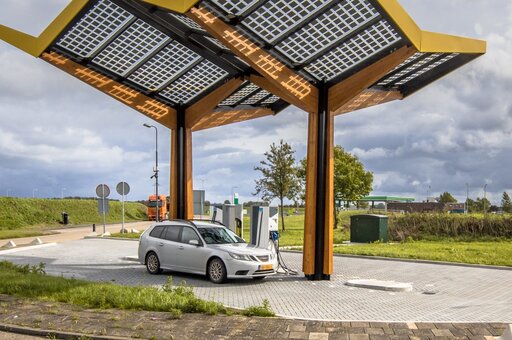On March 30 of this year, the São Paulo City Council approved Law No. 17,336 of March 30, 2020, authored by Councilor Camilo Cristófaro (PSB).
The new Law determines the obligation to provide a charging system for electric vehicles for new residential and commercial building projects registered with São Paulo City Hall since March 31, and the obligation does not apply to existing buildings, ongoing projects and housing programs subsidized by public resources.
Despite the incentive effect on the purchase of electric cars that contribute to reducing environmental impacts, as already explained in Report from Canal Solar, the discussion that arises is about the legality of the aforementioned institute in relation to the right of intervention in private property by the Municipality of São Paulo.
Read more: New buildings in SP must have a charging point for EVs
It is known that there is a prerogative of the Public Power regarding the limitation of the right to individual property in function of the collective interest, which is enshrined in the principle of the social function of property, as well as in the principle of the supremacy of the public interest over the private, provided for, respectively, in article 5, item XXIII and article 37 of the Federal Constitution.
It turns out that, following the premise that State intervention in private property is justified only when linked to the collective interest, we question the effectiveness of this “social well-being” intended by Law No. 17,336/2020, due to the fact that it transfers the burden of electric mobility directly to the private civil construction initiative and, consequently, to the buyers of these projects, without a counterpart from the Public Authorities being presented.
Adherence to solar energy has grown intensely and is becoming an efficient way for real estate projects to reduce consumption costs, in addition to advancing sustainability.
The advantages of generating your own energy have already been realized by companies in different sectors of real state, but what is questioned is the imposition of the Municipality on the private acquisition initiative of the charging system electric vehicles, without the Public Power itself creating similar mechanisms in its structure.
Thus, as it is a burden transferred from the Public to the Private Power, the cost of the supply structure will have a greater impact as the buyers of these projects have lower purchasing power, at the risk of even ineffectiveness of the effects intended by the Law for a portion considerable part of the population of São Paulo.
This is because facilitating the supply structure in condominiums does not make the purchase of electric cars affordable, considering that the prices of these vehicles still vary from R$ 130 thousand to R$ 195 thousand in Brazil, according to information from the automobile market.
Would it then be the most effective measure that starts with encouraging the supply structure, instead of encouraging, with tax reductions, the feasibility of purchasing these vehicles in the first place? Shouldn't there be joint measures to reduce the costs of electric vehicles? Or even start the infrastructure in the public buildings themselves?
Furthermore, regarding the strict competence of the Municipality of São Paulo to edit the standard, we emphasize that only the Union has the competence to intervene materially in property rights, by virtue of articles 22, item II, and 170, item III of the Federal Constitution , so that the State and Municipal Powers only exercise administrative policing and regulation of the use of property.
In any case, we believe that the entire legislative procedure that led to the approval of the standard could have been enriched with the participation of agents from the real estate market and the energy sector, through public hearings, something that did not happen.
Through the aforementioned mechanism of popular participation, the premise that the obstacles to the use of electricity in vehicles reside solely in the lack of supply infrastructure could have been questioned and discussed, or even whether other public incentive measures could achieve better results, which would not directly burden the private sector and, consequently, the consumers themselves.
Finally, we would like to remind you that there is already a specific standard published by ANEEL (ANEEL Normative Resolution No. 819/2018) that regulates the regulation of recharging electric vehicles by those interested in providing this service (distributors, gas stations, shopping centers, entrepreneurs, etc.), published since June 19, 2018, but there has been little evolution in our perception so far in the development of the necessary infrastructure for the still incipient fleet of electric vehicles in the country.
With contribution from Yasmin Yazigi, legal assistant at Lefosse
















